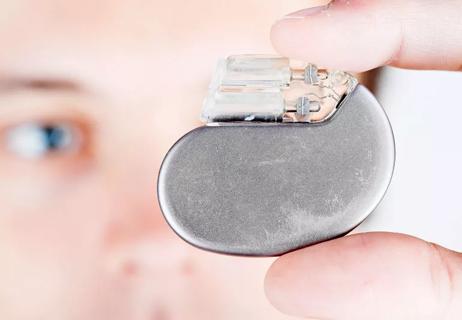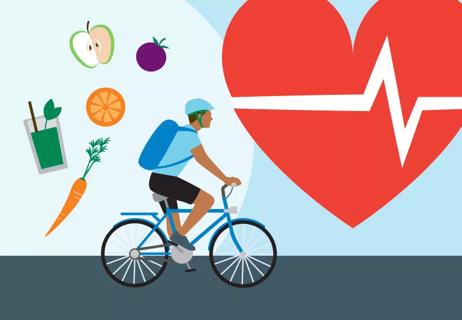Glitches are possible but unlikely

Can mobile phones really disrupt your pacemaker or implantable cardioverter defibrillator (ICD)? Ten years ago, research indicated they could. That’s why the U.S. Food and Drug Administration recommended keeping mobile devices — and the radiofrequency energy they emit — at least 6 inches away from cardiac devices.
Advertisement
Cleveland Clinic is a non-profit academic medical center. Advertising on our site helps support our mission. We do not endorse non-Cleveland Clinic products or services. Policy
But technology has advanced since then. So, do people with pacemakers and ICDs still need to follow the 6-inches rule?
One European study says yes. A second study cautions lingering under power lines.
Pacemakers can mistake interference from a smartphone’s electromagnetic field for a cardiac signal. That can disrupt the pacemaker and cause your heart to beat irregularly. Extreme cases can trigger your ICD to shock your heart back into normal rhythm.
Glitches like those are not common, but still possible, according to the study.
More than 300 people — some with pacemakers and some with ICDs — tested three common smartphones (HTC One XL, Nokia Lumia and Samsung Galaxy 3). Each phone was placed directly over the spot where a cardiac device had been implanted. Phones made test calls over various mobile networks while electrocardiograms recorded participants’ heart function.
Out of all participants, only one was affected by smartphone use.
“Even in worst-case-scenario testing of phones and other mobile devices, there is little to worry about,” says cardiologist Bruce Wilkoff, MD.
Dr. Wilkoff was not involved in the study.
It is very unlikely that symptoms will occur with normal use, he says. Still, to be safe, Dr. Wilkoff does recommend one precaution: “Don’t put a phone in a shirt or jacket pocket on the same side as your pacemaker or ICD,” he says. “This will eliminate all risk.”
Advertisement
Some doctors also recommend holding phones to the ear furthest from the cardiac device.
High-voltage power lines and substations could potentially trigger the same problems for pacemakers and ICDs. But, again, it’s unlikely, according to a second European study.
Researchers tested 40 cardiac devices, exposing them to a range of voltages. They discovered no major concern for people who wear cardiac devices — as long as they’re programmed normally.
“Walking, running, biking or otherwise crossing under power lines is safe,” says Dr. Wilkoff. “Staying under them for too long may be an unnecessary risk, however.”
It’s also worth noting that magnets in devices like the Apple Watch and Fitbits are another mild threat to those with pacemakers, too. For the vast majority of people with pacemakers or ICDs, the risk of any environmental interference is minimal, he notes.
Advertisement
Learn more about our editorial process.
Advertisement

Your scar will heal best if you keep the area clean, dry and covered for an appropriate amount of time

Fainting, heart palpitations and shortness of breath are just a few signs your heart may need help

It’s important to remember that not everyone heals at the same rate

Complications related to the implanted device leads may go unnoticed

Pacemakers steady heartbeat, ICDs reset the heart

Keep the area clean and monitor your incision site for discharge, odor or a change in appearance

Making healthy lifestyle changes ahead of surgery can help you avoid AFib after

What to know about cardiac implants and imaging tests

The tropical fruit is a good source of antioxidants and vitamin C

Most people fall asleep within 10 to 20 minutes, but if your experience is different, adjusting your sleep schedule may help

Exploring your hidden side can lead to better understanding of what makes you tick